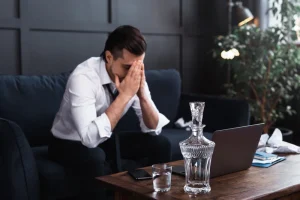
Research the home before you make a decision. In 2011, the National Alliance for Recovery Residences (NARR) established national standards for sober houses. NARR began to affiliate with state-level organizations to promote evidence-based standards for sober houses and other residential recovery programs and centers. MASH is affiliated with NARR and helps promote these standards at sober houses across Massachusetts.
- NARR has since released two updates to the standards, first in October 2015 and then in 2018.
- Documentation that the owner/operator has current liability coverage and other insurance appropriate to the level of support.
- Policies protecting resident and community privacy and confidentiality.
- What’s the difference between a sober home and a recovery residence?
- We do not show halfway houses, treatment programs, or rehabilitation facilities.
Find Certified Sober Living in Massachusetts
- Recovery residences — formerly known as halfway houses — are licensed residential treatment programs, while Massachusetts sober homes are peer-led and do not provide treatment.
- Verification that written resident’s rights and requirements (e.g. residence rules and grievance process) are posted or otherwise available in common areas.
- MASH-certified sober homes are governed by standards that address safety from an administrative, operational, property, and “good neighbor” perspective.
- The third version of the NARR standards provides more explicit guidance to providers, including metrics for evaluating the peer support components of a residence’s recovery environment.
Through our network of certified sober housing and empirically-based recovery principles, MASH’s goal is to help create and foster these safe living environments for those with substance use disorders. The Massachusetts Alliance for Sober Housing (MASH) plays a critical role in alcoholism symptoms supporting individuals in recovery by ensuring access to high-quality sober living environments across Massachusetts. Established in 2007 by a group of sober home operators, MASH was founded to address the need for consistent standards and accountability within the sober housing community. Today, MASH oversees more than 180 certified sober homes. The organization’s core values emphasize health, home, purpose, and community, aligning closely with NARR’s principles to foster environments that promote long-term recovery and personal growth.
- The Mayor’s Office for Economic Opportunity uses evidence and innovation to reduce poverty and increase equity.
- In Massachusetts, state agencies and vendors are only allowed to refer clients to MASH Certified sober houses.
- Evidence that residents’ recovery progress and challenges are recognized and strengths are celebrated.
- Evidence that mechanisms exist for residents to inform and help guide operations and advocate for community-building.
- We promote and enforce the SAMHSA recognized National Alliance for Recovery Residences standards.
Sober House Certification in Massachusetts
Written permission from the property owner of record (if the owner is other than the sober home operator) to operate a sober home on the property. 27.b Residents find and sustain relationships with one or more recovery mentors or mutual aid sponsors. Residents are linked to mutual aid, recovery activities and recovery advocacy opportunities. Community mash sober houses gatherings, recreational events and/or other social activities occur periodically. Documentation that residents are oriented to emergency procedures. Documentation that emergency contact information is collected from residents.

Middlesex Human Services Agency
MASH is a NARR state affiliate for recovery residences. The primary mission of the Minnesota Association of Sober Homes is to promote the establishment, successful management, and growth of high quality community-based sober-living residences. What is expected of residents of a sober home? Residents of sober homes are expected to abstain from alcohol and drug use, other than prescribed medications, and to refrain from prescription misuse.
A contract was awarded to the Massachusetts Alliance for Sober Housing (MASH) to be the certifying body, and the training and technical assistance vendor. Establishing a strong sober home community culture is critical to success in recovery. MASH-certified sober homes must also offer a peer-based environment and be drug- and alcohol-free.


Additionally, MASH offers funding through its various grant programs to support sober housing initiatives. For example, the organization has facilitated significant investments in the expansion of permanent supportive housing across Massachusetts. Through these grants, MASH addresses critical needs, including helping individuals who are homeless or at risk of homelessness find stable housing. In 2007, eight sober home operators established the nonprofit Massachusetts Alliance for Sober Housing.

